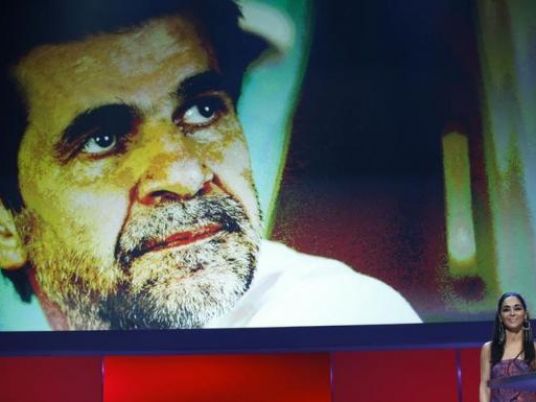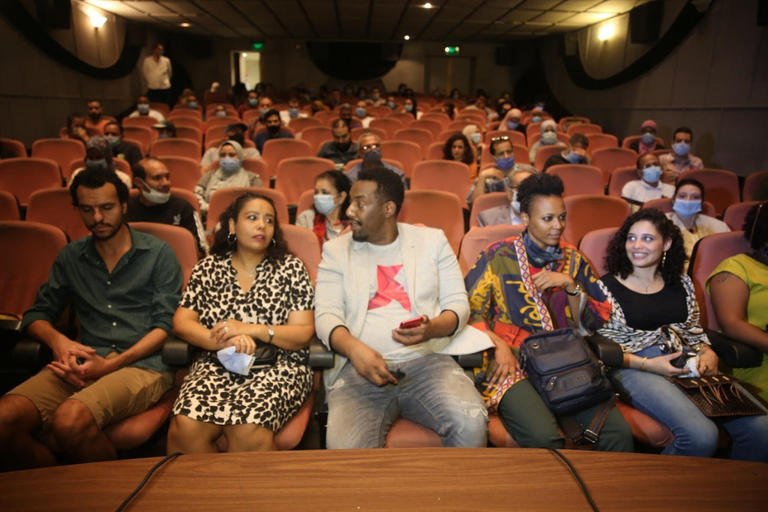
Banned Iranian director Jafar Panahi's "Taxi," which shows a cabby driving an odd assortment of people around Tehran but is really a condemnation of censorship, won the Golden Bear for best film on Saturday at the Berlin International Film Festival.
The award, which the director was not in Berlin to accept, was hailed by German Foreign Minister Frank-Walter Steinmeier in a statement as “an important sign for the freedom of art.”
On an Instagram account said to be Panahi's, Iranian journalists at a post-awards news conference said he had posted a message in Farsi saying: "This is an important artistic and political acknowledgment of the film that makes me very proud."
At the news conference, the Golden Bear was placed on its own for cameras, with no one holding it.
The apparently whimsical but ultimately profound look at life and filmmaking in Iran, shot from the interior of a taxi with the director at the wheel, was shown despite Tehran's ban on Panahi.
“He created a love letter to cinema, his film is filled with love for his art, his community, his country and his audience,” director Darren Aronofsky, head of the prize jury, said in presenting the award.
It was accepted on Panahi's behalf at the awards ceremony by a girl identified on the Berlin festival's website as Hana Saeidi, who cried as she stood in front of the glittering audience.
Saeidi appears in the film and, according to the website, is Panahi's niece. But, because of sensitivities surrounding the film, the people appearing in it are not listed in the credits.
Other films by Panahi have been shown at the festival since 2010, when he was banned from making films for 20 years and sentenced to six years in prison for "propaganda against the system".
He was later released into house arrest but still banned from leaving the country, shooting films or scriptwriting.
His latest film was smuggled out of Iran by means that have not been specified by festival director Dieter Kosslick.
"I think it is important that we had these films, these political films, because they actually reflect what happens there," Kosslick said.
Scott Roxborough, film critic for the Hollywood Reporter, said the choice of Panahi's film "wasn't a surprise."
"I had it up top before the festival even started just because of Panahi's record," he said, "and also, of course, the political aspect of the film, the fact that he shot it in secret, the fact that he's been banned from filmmaking by the Iranian government and Berlin always likes to celebrate political films if they have a chance."
Two other films with political messages also received top prizes.
The Chilean film "The Club" directed by Pablo Larrain, about defrocked Roman Catholic priests, won the Silver Bear Grand Jury Prize.
"This is an important artistic and political acknowledgment of the film that makes me very proud," Larrain said, adding that the award should assure the film a wider audience.
"Ixcanul" (Volcano), a Guatemalan film directed by Jayro Bustamente about the hard life of Mayan coffee growers, won the Silver Bear Alfred Bauer Prize.
Although the film focuses mostly on indigenous women whose lives are complicated by an unwanted pregnancy, Bustamente said "we avoided being folkloristic."
"I hope we were able to help the people in Guatemala realize what culture they have there,” he said.
The award for best director was shared by Radu Jude of Romania for "Aferim!" and Polish director Malgorzata Szumowksa for "Body."
Tom Courtenay received the award for best actor for his performance in Andrew Haigh's "45 Years" and Charlotte Rampling received the best actress award for the same film.
The award for best script went to Chilean director Patricio Guzman for "El Boton de Nacar" (The Pearl Button).
The awards were decided by a seven-person jury headed by Aronofsky. The 65th edition of the 11-day festival saw more than 400 films screened, 19 of them competing for the main prize.

